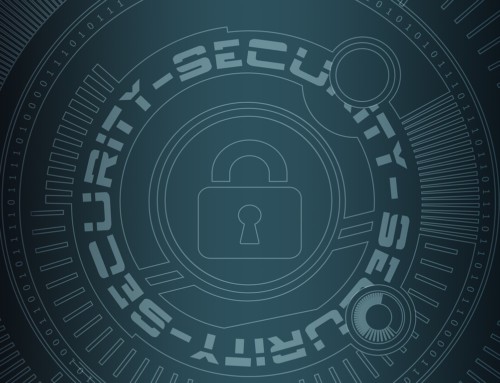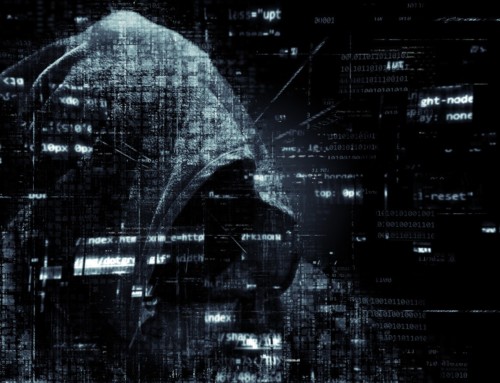It is essential to implement email security for law firms since they are often targeted by various cybercriminal individuals and organizations due to high volume of valuable information.
Having secure digital content, meaning secure private and personal information is important to every individual, but even more so to a company. Unfortunately, when it comes to security breaches no one can escape vulnerabilities and no business or a person can say they are immune to cyberattacks.
Every business has more or less confidential information that should be protected in order to keep the company’s work and reputation intact. There is awareness of all potential dangers lurking in the digital world and it is essential to educate on how to protect what is most valuable.
Law firms - targets for their confidential info
Law firms are especially at risk from being exposed to security breach, regardless whether is it
- phishing attack,
- insider misuse,
- data theft or
- data leakage.
Apart from obvious cyberattack targets, like banks, law firms hold information that are of great value for trading. Information that can be compromised include
- litigation strategy or settlements,
- client’s business information,
- confidential client-lawyer communication as well as
- a range of personally identifiable information of employees, clients or third parties, together with payment cards details.
Law firms have legal obligation to protect their data
Despite being in the red zone of cybercriminals interest, very few of law firms address this issue appropriately. Law firms have not only ethical responsibilities towards their clients, but also legal obligation to protect their data. Just recently small number of law firms started taking proper action in order to protect what is considered to be most valuable asset of modern times - information.
Reportedly the most common way of breaching email security in law firms is by the use of email phishing campaigns. The main problem is that criminal groups behind this are highly sophisticated and these emails are far beyond the usual spam or phishing schemes, meaning their techniques are persistent and often difficult to detect. Sometimes the emails come in the form which requires the user to click on a link or attachment which triggers the malicious software that then infiltrates within a system; other times as a legal advice request and even disguised as an email from another employee of the firm.
Implementing security measures in law firms
There are several key points crucial for overall cybersecurity, compliance with them together with raising awareness and educating employees are crucial for securing digital information of the law firms.
In order to successfully implement security measures law firms should deploy transparent email encryption, which unlike traditional encryption doesn’t require extra work from the employees, meaning there aren’t passwords, securing of attachments or decryption.
New encryption platforms are always running in the background, automatically protecting email content at any time. Moreover, apart from transparent encryption, focus should be on two-factor authentication, encrypted USB drives and laptops as well as the intrusion detection and prevention tools.
Handling in-house security threats for law firms
Given the numerous outside threats to the law firms’ digital information security, what is more alarming is the fact that internal threats are posing as the number one security risk. The highest number of security breaches come from one of the following factors – employee negligence, employee ignorance or malicious employees.
Without risk-management policies and platforms like ISO 27001 or the NIST Framework, and proper security education of law firms’ employees, information can be lost even without the malicious intention.
Proper handling of the company’s devices
There have been reported cases of improper handling of the company’s devices that can often end up lost. Without the encryption, such devices leave confidential information out in the open, providing easy access to valuable information to the third parties.
Cloud-based file sharing services can cause leakage
Additionally, the use of cloud-based file sharing services can be another way of information leakage out of the law firm. Statistics showed that over 50 percent of lawyers use such services to transmit and share confidential information.
Personal email for storing company’s files is a risk
Moreover, it is not rare that lawyer uses personal email for storing company’s files, which additionally increases the risks of disclosing sensitive data. There even has been reported case of client’s confidential tax information becoming publicly available on a cloud service, due to lawyer’s inability to adjust sharing settings.
Security education for law firms’ employees
This brings us to the importance of educating employees about the matters of cybersecurity. The above mentioned example clearly illustrates that negligence doesn’t have to be the only reason of losing information. Employee may succeed in taking proper care of the devices but still unknowingly do something which can have devastating effect on the company and client.
Personal devices are threat when used for work
Another such example is when the lawyer transmits the data on personal computer, so he or she can access it while at home, creating even higher risks. Furthermore, accessing public Wi-Fi network while working on a case, where use of personal or business laptop has little or no meaning.
Outside security threats for law firms
Industrial espionage
There are also scenarios of intentional information leakage outside of law firms. This can happen for the purposes of industrial espionage or valuable information trading. It wasn’t rare that former employee trades company’s secrets with their competitors or the opposite side of the legal case.
Risk-management plan
Therefore, law firms need to develop solid cybersecurity risk management plan. It is essential they do so, because of the volume and sensitivity of confidential information. The reasonable security measures can not only protect the clients but also the company’s responsibility in cases of security breaches.
On the positive side, digital security components can be implemented without the need to wait on the development of a comprehensive cybersecurity risk-management program and later easily fit in into any plan.
Despite the series of risks and threats law firms still need to increase the awareness. By implementing these measures in their everyday businesses, law firms will keep their ethical and legal duties.
According to the experts’ analyses, the proper risk-management implementation starts with the awareness that there is no way to completely diminish security breaches. Keeping this fact in mind, the next step for law firms is to work on developing strong detection and containment plan, together with constant monitoring followed by ability to adapt to changing risks.
On time detection is essential for preventing third-party breaches and financial consequences. Together with security training, awareness on policies and procedures law firms can work with security consultants in order to create necessary adjustments.
How Secure Swiss Data can help
Law firms work with a lot of sensitive information. Sending and receiving sensitive information online should be done securely. Also if other communication methods with clients are not protected and encrypted, they can be intercepted and can bring damage both to the company and to the client.
That is why Secure Swiss data is offering complete encryption of email communication.





Leave A Comment